calsfoundation@cals.org
Breweries
Beer brewing in Arkansas dates back to the mid-nineteenth century. Documentation on early beer brewing in Arkansas, however, is sparse. The Joseph Knoble Brewery operated in Fort Smith (Sebastian County) from 1848 to 1881. In Little Rock (Pulaski County), the Little Rock Brewing & Ice Company operated from 1898 until 1925 but sold only ice during its last decade in operation. After that, however, breweries did not begin operating in the state again until well after Prohibition ended in 1933.
As German immigrants migrated to and settled in Arkansas, especially in the western portion of the state, many found homesteads near Fort Smith, where the state’s best-known historic brewery is located. Built circa 1848, the Joseph Knoble Brewery served locals until 1881. Joseph Knoble, a native of Wittenberg, Germany, constructed this three-story building using typical German brewery artisanship—each floor had a specific separate function. The third floor, which the brewer approached from a staircase on the outside of the building, was the brewing area and the space where the brewmeister would dry barley before its conversion to mash. He would then mix the mash with the hops and pour that mixture into a brewing kettle. Later, the brewer added yeast for fermentation; in about three days’ time, the beer was keg-ready. It was transferred from the third floor by the opening of several valves that allowed the beer to travel down a series of pipes and into kegs on the second floor. After the kegging of the beer, strong men moved the kegs from the second floor to the first floor vault and stored them. The second floor had a summertime outdoor beer garden, and the first floor had an indoor beer garden—both typical of an authentic German brewery.
This building still stands, but over the years it suffered neglect. The Carl H. Wortz Jr. family restored the building—for about $10,000—after Carl’s wife purchased it for him as a Valentine’s Day gift in 1961. They converted the building into a museum that displayed traditional German brewing equipment and that housed local remnants including a wine press from Altus (Franklin County), several war mementos, and Caddo Indian artifacts. In the late 1990s, the building underwent another renovation to house the chain restaurant Doe’s Eat Place.
Another noteworthy brewery was Little Rock Brewing & Ice Company, which opened in Little Rock in 1898. However, it was open as an independent business for less than two years before being purchased by Anheuser-Busch of St. Louis, Missouri, after which it continued to make beer in smaller quantities before Prohibition put an end to that side of the business.
It was a long while after Prohibition before commercial beer brewing returned to Arkansas. There was an attempt to open a brewery called the Ozark Club in the 1950s, but that plan failed. William Lyon operated the Arkansas Brewing Co. from 1983 to 1986 in Little Rock but ran into problems of consistency, as well as state regulations that prohibited both the sale of food by breweries and the sale of alcoholic beverages from the site of manufacture. In 1992, Wiedman’s Old Fort Brewery opened in Fort Smith. It made “Arkansas Ale,” a regional favorite, and “Hell on the Border Porter,” which received 14.5 points (out of twenty) in a tasting at the Great American Beer Festival in 1994. Wiedman’s closed in 1997.
In 2000, Arkansans Russ and Sue Melton revived the state’s beer scene. That year, they opened Diamond Bear Brewery in Little Rock. Russ Melton had become fascinated with craft beer while he was stationed in West Germany with the U.S. Army in the 1970s. When he returned to the States in the 1980s, he moved to Kansas City, Missouri, and developed a taste for the Boulevard Brewing Company’s beers. When the Meltons returned to Arkansas in the 1990s, he decided to make his hobby a business and opened a production brewery in Little Rock in 2000. Diamond Bear brews a variety of beers that are sold throughout the state and in western Tennessee and northern Louisiana. In 2003, the Arkansas Brewers Guild was established to tackle legal obstacles faced by state breweries, such as production caps and the necessity of dealing with distributors to get beer to market. The guild was able to get the Arkansas Native Brewery Act passed that same year. This law increased production limits and allowed sales on brewery premises.
In 2010, Refined Ale Brewery opened in Little Rock, but it closed in 2019. Since then, a number of other breweries have been established in the state. In 2012, Fossil Cove Brewing Co. opened in Fayetteville (Washington County), while in Springdale (Washington and Benton counties) Core Brewing & Distilling Co. (later renamed Scarlet Letter Beverage Co.) and Saddlebock Brewery opened in 2011 and 2012, respectively. In 2013, Stone’s Throw Brewing opened in Little Rock, and Ozark Beer Company opened in Rogers (Benton County), while Superior Bathhouse Brewery and Distillery of Hot Springs (Garland County), which leases a former bathhouse from the National Park Service, opened its tasting room; Superior began offering its own brews in January 2015. By April 2015, there were eighteen “native” brewer permits for beer, three permits that included provisions for restaurants, and five microbrewery restaurants. Act 857 of 2015 simplified the laws regulating breweries and allowed for some self-distribution of beer. Act 681 of 2019 permitted brewing in dry counties, albeit with restrictions.
The state is also home to a selection of brewpubs (restaurants that brew beer not sold outside the restaurants). Vino’s Brewpub is located in Little Rock, while Hog Haus Brewing Company—which opened its doors in 2004—is located on Dickson Street in Fayetteville in the old Ozark Brewing Company building. West Mountain Brewing Company is also in Fayetteville. The Rogue Roundabout microbrewery and restaurant opened in the dry-county city of Conway (Faulkner County) in 2023.
In 2013, Arkansas had thirteen breweries in the state; by 2016, this number had increased to more than thirty, with the largest concentrations being in northwestern Arkansas and Little Rock, and by 2022 there were forty-nine breweries. Other breweries in the state have included Apple Blossom Brewing Company in Fayetteville (which closed in 2023, with Flyway Brewery taking over its space to expand into northwestern Arkansas), Bike Rack Brewing Co. in Bentonville (Benton County), Bubba Brews in Bonnerdale (Hot Spring County), Flyway Brewery in North Little Rock (Pulaski County), Fort Smith Brewing Company in Fort Smith, Gotahold Brewing in Eureka Springs (Carroll County), Gravity BrewWorks in Big Flat (Baxter and Searcy counties), Prestonrose Farm and Brewing Company in Paris (Logan County), Lost Forty in Little Rock, and Slate Rock Brewing in Amity (Clark County). In 2019, the trustees of the University of Arkansas (UA) in Fayetteville approved a certificate program in brewing science. Although most breweries are concentrated in the western half of the state, there are a few in the eastern half, such as Native Brew Works in Jonesboro (Craighead County), which opened in 2021. In the southern part of the state, Native Dog Brewing opened in Camden (Ouachita County) in 2021.
The COVID-19 pandemic that spread across the world in 2020 affected a number of Arkansas breweries, as many breweries closed their taprooms to prevent the spread of the virus. Those which possessed the capability to can or bottle their brews fared best, as they could sell beyond their immediate location. Little Rock’s East Sixth Street Brewery (formerly Rebel Kettle) closed in 2020 in part due to the pandemic, and production of craft beer went down nearly seven percent in 2020 compared with the previous year. However, production rose in 2021 to an all-time high, with state breweries producing 50,509 barrels of product, compared with 38,066 barrels the previous year, and production has continued upward since then. By 2024, there were forty-seven state-licensed small breweries and microbreweries in Arkansas.
Black Apple Cidery opened in Springdale in 2014, offering a range of ciders. The 2020s saw the emergence of more breweries dedicating to non-beer products. The state’s first meadery, Arkansas Meadery in Saline County, released its first bottles in 2021; it was followed by Juniper Tree Meadery in Paragould (Greene County). In 2023, Origami Sake in Hot Springs started brewing the traditional Japanese beverage using local spring water and state-grown rice.
For additional information:
Brantley, Max. “Fort Smith’s Knoble Brewery Loving Remnant of Golden Days of ‘Local’ Beers.” Arkansas Gazette, March 21, 1976, p. 4E.
Chase, Glen. “Breweries Becoming Toast of Town.” Arkansas Democrat-Gazette, February 15, 2015, pp. 1G, 8G.
Cottingham, Jan. “Craft Breweries in the Age of COVID.” Arkansas Business, August 17–23, 2020, pp. 1, 8–9.
———. “Marking Arkansas a Mecca for Sake.” Arkansas Business August 29–September 4, 2022, pp. 1, 8–9.
Deane, Ernie. “Notes on a Fort Smith Landmark.” Arkansas Gazette, January 19, 1964, p. 5E.
Diamond Bear Brewery. http://www.diamondbear.com (accessed September 30, 2022).
Fayetteville Ale Trail. http://www.fayettevillealetrail.com/ (accessed September 30, 2022).
Flemmons, Kenn. “Little Rock Brewery & Ice Company.” Pulaski County Historical Review 70 (Spring 2022): 18–26.
Ford, Edsel. “Preserving Splendors of the Past.” Arkansas Democrat Magazine, June 21, 1964, p. 8.
“Former Brewery Now a Museum.” Arkansas Democrat Magazine, August 12, 1962, p. 15.
“Fort Smith Man Restores Brewery Built 106 Years Ago.” Arkansas Gazette, July 30, 1961, p. 2A.
Harrison, James M., and Darrell J. Glaser. “Hurdles to Hopes: How Self-Distribution Laws Affect Craft Brewery Output.” Contemporary Economic Policy, August 24, 2024. https://doi.org/10.1111/coep.12668 (accessed August 29, 2024).
Hebda, Dwain. “Generating a Buzz.” Arkansas Democrat-Gazette, February 28, 2023, pp. 1E, 6E. Online at https://www.arkansasonline.com/news/2023/feb/28/generating-a-buzz/ (accessed February 28, 2023).
———. “Sake to Me.” Arkansas Democrat-Gazette, February 26, 2023, pp. 1E, 4E. Online at https://www.arkansasonline.com/news/2023/feb/26/sake-to-me/ (accessed February 27, 2023).
Helton, David. “Fort Smith Architecture: Two Examples of the German Influence.” Journal of the Fort Smith Historical Society 5.1 (1981): 19–20.
Koch, Stephen. “Logan Run: Breweries Both Sacred and Secular Find Footing in Hilly Arkansas Wine Country.” Arkansas Times, October 2019, pp. 81–85. Online at https://arktimes.com/travel/2019/10/09/sacred-and-secular-breweries-in-arkansas-wine-country (accessed September 30, 2022).
Magsam, John. “Abbey Has Lofty Goals for Brewery.” Arkansas Democrat-Gazette, October 6, 2019, pp. 1G, 8G.
———. “Arkansas Beer Production Grows in 2022.” Arkansas Democrat-Gazette, November 26, 2023, pp. 1G, 8G. Online at https://www.arkansasonline.com/news/2023/nov/26/arkansas-beer-production-grows-in-2022/ (accessed November 27, 2023).
———. “Batesville Bar Puts Students on Tap.” Arkansas Democrat-Gazette, November 10, 2024, pp. 1G, 8G. Online at https://www.arkansasonline.com/news/2024/nov/10/lyon-college-students-study-suds-at-batesvilles/ (accessed November 11, 2024).
———. “Breweries Barely Keeping Ahead.” Arkansas Democrat-Gazette, July 5, 2020, pp. 1G, 8G.
———. “Breweries Going with the Flow.” Arkansas Democrat-Gazette, January 24, 2021, pp. 1G, 8G. Online at https://www.nwaonline.com/news/2021/jan/24/breweries-going-with-the-flow/ (accessed September 30, 2022).
———. “Breweries’ Production Soars in 2021.” Arkansas Democrat-Gazette, August 7, 2022, pp. 1G, 8G. Online at https://www.arkansasonline.com/news/2022/aug/07/breweries-production-soared-in-2021/ (accessed September 30, 2022).
———. “Core Continuing to Find Success.” Arkansas Democrat-Gazette, September 10, 2023, pp. 1G, 2G. Online at https://www.arkansasonline.com/news/2023/sep/10/core-continuing-to-find-success/ (accessed September 11, 2023).
———. “Gotahold Brewing Wins Trade Awards.” Arkansas Democrat-Gazette, June 22, 2023, pp. 1D, 2D. Online at https://www.arkansasonline.com/news/2023/jun/22/gotahold-brewing-wins-trade-awards/ (accessed June 22, 2023).
———. “Ozark Beer Co. Pours on Growth.” Arkansas Democrat-Gazette, July 19, 2015, pp. 1G, 8G.
———. “Paris Farm Brewery Triples Capacity.” Arkansas Democrat-Gazette, June 5, 2022, pp. 1G, 2G. Online at https://www.arkansasonline.com/news/2022/jun/05/paris-farm-brewery-triples-capacity/ (accessed September 30, 2022).
———. “Sales Hopping at 2 State Breweries.” Arkansas Democrat-Gazette, April 14, 2013, pp. 1G, 8G.
———. “State Beer Breweries Deliver in 2019.” Arkansas Democrat-Gazette, November 15, 2020, pp. 1G, 7G.
———. “State Beer Output up a Frothy 37%.” Arkansas Democrat-Gazette, August 26, 2018, pp. 1G, 8G.
———. “State Breweries Cleared for Growth.” Arkansas Democrat-Gazette, April 12, 2014, pp. 1G, 8G.
———. “State Breweries Try to Get ahead of Covid Setback.” Arkansas Democrat-Gazette, January 30, 2022, pp. 1G, 8G. Online at https://www.arkansasonline.com/news/2022/jan/30/state-breweries-try-to-get-ahead-of-covid-setback/ (accessed September 30, 2022).
———. “State Sees Uptick in Craft Beers.” Arkansas Democrat-Gazette, August 4, 2019, pp. 1G–2G.
Owens, Nathan. “Beer Not Only Thing Brewing on Paris Farm.” Arkansas Democrat-Gazette, December 2, 2018, pp. 1G–2G.
Smittle, Stephanie. “Hive Mind.” Arkansas Times, October 2023, pp. 42–45. Online at https://arktimes.com/arkansas-blog/2023/09/30/honey-wines-weird-history-and-how-a-meadery-in-paragould-is-keeping-it-alive (accessed October 2, 2023).
Sorensen, Brian. Arkansas Beer: An Intoxicating History. Charleston, SC: American Palate, 2017.
———. “Arkansas Brewers Guild Grows alongside State’s Beer Industry.” Arkansas Times, April 25, 2019. https://www.arktimes.com/arkansas/arkansas-brewers-guild-grows-alongside-states-beer-industry/Content?oid=29311145 (accessed September 30, 2022).
———. “Arkansas’s Next Beer Boomtown.” Arkansas Times, July 2022, pp. 90–94. Online at https://arktimes.com/eat-arkansas/2022/07/06/jonesboro-poised-to-be-arkansass-next-beer-boomtown (accessed September 30, 2022).
———. “Tall Cool Ones: The Breweries of Arkansas, Part 1.” AY Magazine, April 2023, pp. 80–85. Online at https://aymag.com/breweries-of-arkansas-part-1/ (accessed April 12, 2023).
Steed, Stephen. “Small Brewer Missed State Wave but Sheds Few Tears in the Beer.” Arkansas Democrat-Gazette, October 15, 2017, pp. 1G, 2G.
Van Zandt, Emily. “Home(town) Brews.” Arkansas Democrat-Gazette, July 7, 2015, pp. 1E, 6E.
Jeffrey M. Widener
University of Oklahoma
 Wineries
Wineries Arkansas Brewing Company Bottle Cap
Arkansas Brewing Company Bottle Cap 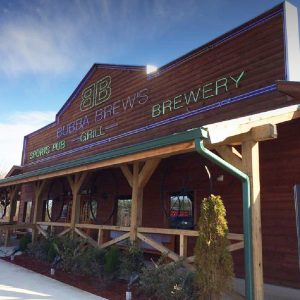 Bubba Brew's
Bubba Brew's 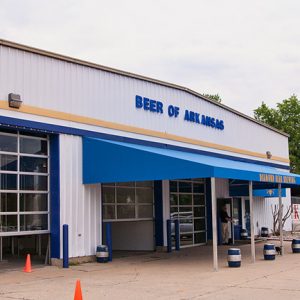 Diamond Bear Brewery
Diamond Bear Brewery  Doe's Eat Place
Doe's Eat Place 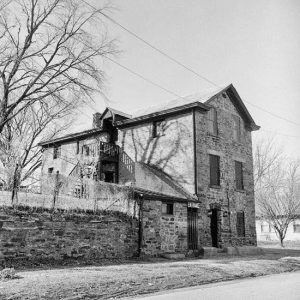 Knoble Brewery
Knoble Brewery 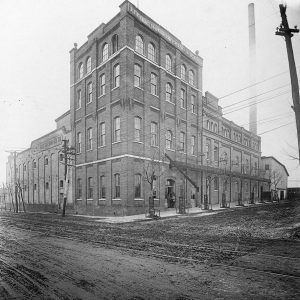 Little Rock Brewing & Ice Company
Little Rock Brewing & Ice Company 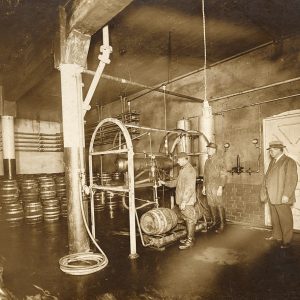 Little Rock Brewing & Ice Company
Little Rock Brewing & Ice Company  Lost Forty Brewing
Lost Forty Brewing 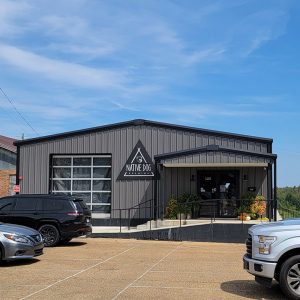 Native Dog Brewing
Native Dog Brewing 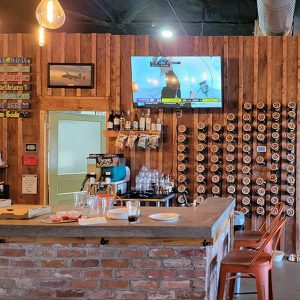 Native Dog Brewing
Native Dog Brewing  Point Remove Brewing
Point Remove Brewing 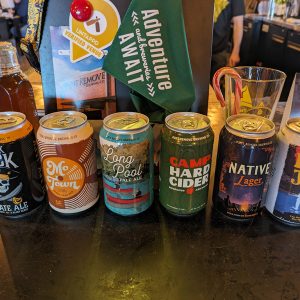 Point Remove Brewing Company Products
Point Remove Brewing Company Products  Solar Eclipse Beer
Solar Eclipse Beer  Solar Eclipse Beer
Solar Eclipse Beer  Vino's Entrance, 2022
Vino's Entrance, 2022 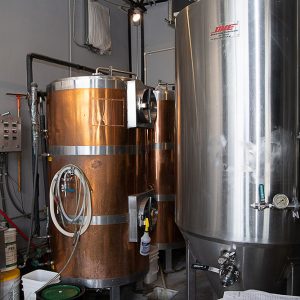 Vino's Microbrewery Equipment
Vino's Microbrewery Equipment 



Comments
No comments on this entry yet.